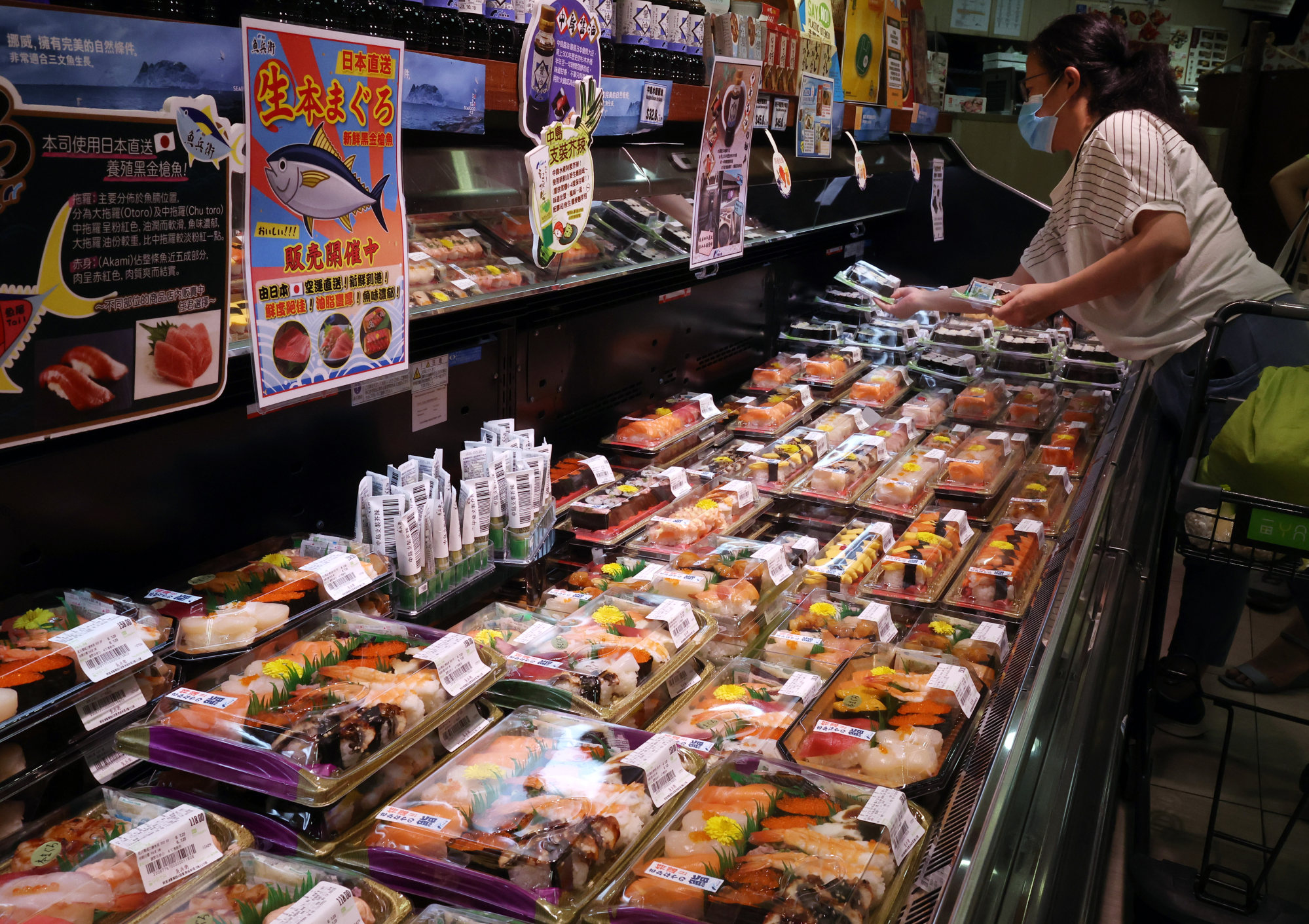
Hong Kong will ban ‘large number of prefectural sea products’ from Japan over Fukushima waste water discharge, John Lee warns
- Chief executive doubles down on warning by city authorities that restrictions will extend beyond current scale, citing uncompromising stance on food safety
- Controversy centres on Japan’s plan to discharge large amount of waste water from devastated Fukushima nuclear plant into sea
Hong Kong will ban “a large number of prefectural sea products” from Japan if the country proceeds with a controversial plan to discharge radioactive waste water into the sea, the city’s leader has warned while adding he is willing to “err on the side of caution”.

It would take an estimated 30 years to dispose of the 1.37 million tonnes of contaminated water.
Lee called the scale of the planned discharge “unprecedented”, warning the risks were “very unknown” in other areas and that he would be “willing to err on the side of caution”.
Hong Kong still wary of Japan radioactive water discharge plan, despite UN go-ahead
He said the ban would “definitely go beyond” the current practice, in which five Japanese prefectures – Fukushima, Chiba, Gunma, Ibaraki and Tochigi – are only allowed to export certain food types to Hong Kong if they can provide radiation certificates.
A source close to the government said banning all sea products from certain prefectures “south of Fukushima”, considering the direction of the current in the Pacific Ocean, was being discussed internally.
Japanese business chamber representatives were currently in Hong Kong to persuade the city’s government to adopt a plan that could minimise the impact on trade for both places, the insider added.
“But Hong Kong authorities don’t have much leeway on the issue, as our policy stance has to be in line with Beijing’s,” the source said.

City leader Lee noted that the side effects of consuming radioactive food would only surface several years later. He highlighted that no expert could guarantee the discharge posed no harm to food safety.
“It affects the present population. It will also affect the next generation, our children,” he stressed, highlighting the importance of assuring food safety in Hong Kong.
“So I must ensure that food safety is protected in Hong Kong. And I must ensure that members of the public will be reassured that food is safe in Hong Kong,” he vowed.
Lee added he had tasked Secretary for Environment and Ecology Tse Chin-wan to form and lead a multi-department team to design an action plan, to be announced as early as possible.
Hong Kong team unveils cheap ‘artificial mussels’ to check for nuclear pollution
The city’s Japanese consulate has defended the discharge scheme, saying the waste water had been treated using an “Advanced Liquid Processing System” and would not harm agricultural, marine or other food products.
But mainland China last week announced plans to ban imports from 10 Japanese prefectures, including Fukushima, with all shipments from other regions of the country to be fully screened, instead of undergoing spot checks.
Environment minister Tse last month warned that a potential ban on Japanese seafood imports could cover more than five prefectures already under restrictions but stopped short of revealing more details.
Hongkongers to buy less Japanese food, avoid country over waste water plan: poll
The city’s catering and seafood industries earlier warned that following the mainland in extending restrictions on food imports from Japan could lead to higher prices.
Business has dropped by as much as 30 percent in higher-end dining places serving Omakase – a type of meal involving dishes selected by the chef and made from fresh ingredients of the day.
Responding to their concerns, Lee on Tuesday said the sector should understand the “forced” decision by the government.
“I’m sure that they will know safety is important. And they will know that public confidence in food safety is so important that it will affect the whole catering sector if we don’t handle it in a way that citizens will feel safe,” Lee argued.
He added authorities had already procured equipment for further inspection of food items from affected regions.
Lawmakers in the city have ramped up calls for a hardline approach, including imposing the food bans before the discharge.


